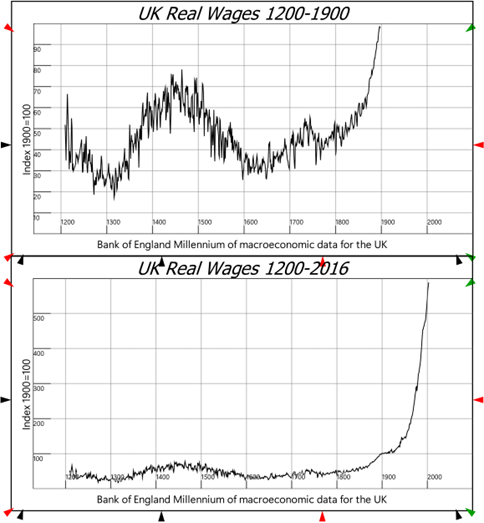Steve Keen in The Ideas Letter:
Daniel Susskind’s new book, Growth: A Reckoning (2024), opens with an important question about a remarkable fact: why did the real incomes of ordinary people in the United Kingdom rise so rapidly from the mid-1700s on, after many millennia of effective stagnation?
People struggling with the cost-of-living crisis today might not believe this is true, but Susskind illustrates this fact with data from the Bank of England’s excellent Millenium of Macroeconomic Data project. Using historical records on basic consumption items, the Bank of England indexed real wages to 100 in 1900, and showed that, though wages fluctuated over time, between 1200 and the late 1800s, the real wage never exceeded 80% of its 1900 level. Then, with a take-off that can be dated back to the mid-1700s, real wages rose dramatically, to six times the 1900 level by the year 2000, as Figure 1 illustrates.

Susskind observes that, though there had been 600 years of dramatic change before 1750, these changes did not increase the standard of living of the ordinary citizen of England…
More here.
Enjoying the content on 3QD? Help keep us going by donating now.
